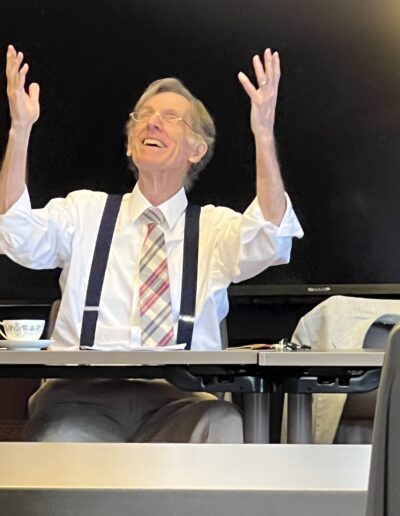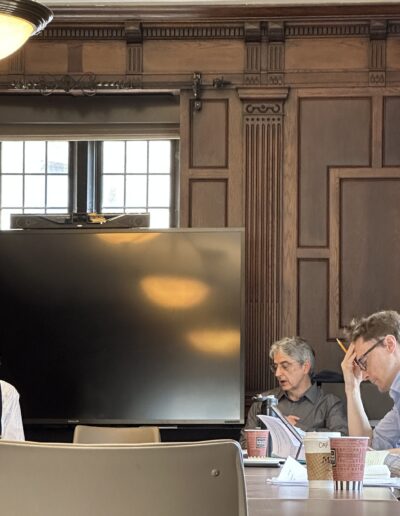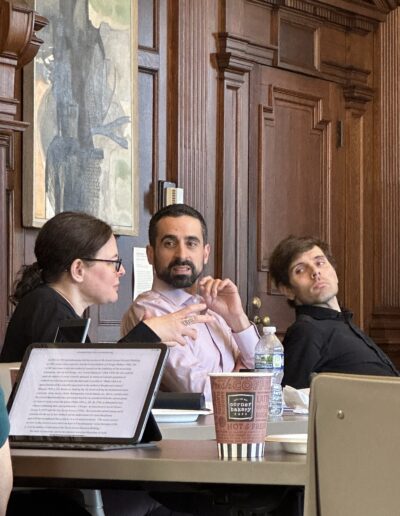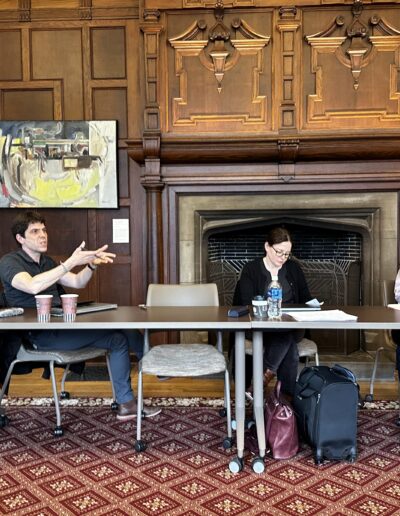The Committee System and the Social Sciences at the University of Chicago after World War II
Workshop
15 April 2023
University of Chicago
Organizers: Philippe Fontaine (ENS Paris-Saclay) and Joel Isaac (University of Chicago)
Sponsors: UChicago-CNRS Partnership (UChicago Global), the France Chicago Center
Summary
Historians of the social sciences usually refer to Chicago’s interdisciplinary committees in the context of the simplification of the university’s administrative organization. Following the new divisional organization and the grouping of departments into divisions in the 1930s, President Hutchins hoped to promote cross-disciplinary research by encouraging the formation of committees. Comprised of members from different disciplines, committees are easily contrasted with academic departments which include members with the same disciplinary background.
At the University of Chicago, academic departments and committees fit well the customary opposition between specialism and interdisciplinarity. On that view, it is frequent to contrast the stability of disciplines with the highs and lows of cross-disciplinary research ventures. Accordingly, committees are described as occasional efforts to loosen up the disciplinary yoke in response to new research interests and institutional ambitions—adaptive structures in a sense. They certainly were if only because in general they relied on the active participation of department heads who closely monitored their activities to ensure their compatibility with the objectives of their departments. Yet, committees were much more.
On the one hand, interdisciplinary committees were a formidable instrument of intellectual stimulation and socialization for their members. They provided them with an opportunity to familiarize themselves with each other’s scientific backgrounds, practices and jargons, realize the significance of academic cultural differences, and learn ways to accommodate them, something that monodisciplinary academic departments do not have to do.
On the other hand, interdisciplinary committees were meant to decompartmentalize institutional structures. They represented a new flexibility instrument that allowed central administration to introduce institutional change without compromising the stability of academic departments. That is not to say that committees did not impact departmental life, however.
In view of the above, it comes as a surprise that Chicago’s committees have not received more historical attention. To the best of our knowledge, despite papers written for anniversary celebrations, the history of a number of Chicago’s interdisciplinary committees, including the Committee on Human Development, the Home Economics Committee, the Committee on International Relations, and the Committee on Communication, has yet to be written. It is the main purpose of the workshop to gather the few people who have already written on committees and convince others to write on those committees that have been neglected by the historiography.
Background
This workshop is part of a broader project, ‘Transforming Homo Economicus’, initiated under the sponsorship of CNRS and meant to improve our understanding of the way economists have used other social sciences in their work throughout the twentieth century
This project examines the current position of economics in relation to other social sciences in the United States by giving an account of their changing interactions over the past hundred years. It is difficult to examine that question historically without taking heed of the prevalent belief among economists that their discipline is special among the social sciences, in part because it has moved to rapidly away from them since the Second World War. This belief has played no minor role in minimizing the extent of interactions between economics and other social sciences in the interwar era; it has likewise obscured the extent of such interactions in what may be called the ‘cross-disciplinary age’ (1940s-late 1960s); finally, it has encouraged the perception that behavioural economists were the only ones to consider insights from other social sciences when the reality is that other economists have also looked outside their own discipline.




